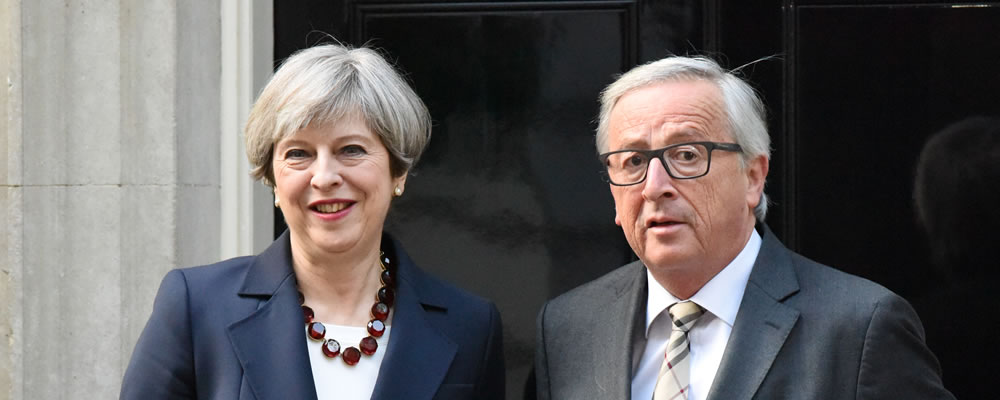Euro to Pound Exchange Rate Struggles to Recover amid Weakening Eurozone Economy
This week so far, the Euro to Pound Sterling (EUR/GBP) exchange rate has slipped due to underwhelming Eurozone data, as well as some cautious optimism surrounding the latest developments in the highly tumultuous Brexit process.
EUR/GBP looks to be on track for another week of losses, unless the pair sees a recovery in the coming day.
EUR/GBP opened the week at the level of 0.8930 and has generally trended lower. This morning, EUR/GBP touched on a low of 0.8841 – which marked the worst level in two months. At the time of writing, EUR/GBP trended fairly closely to those lows.
This week has seen the UK government’s position on Brexit soundly defeated in a Parliament vote, but despite this UK Prime Minister Theresa May was able to survive a no-confidence vote in her government last night.
These factors made Pound (GBP) investors cautiously optimistic about how the Brexit process may develop next, while the Euro (EUR) has been unappealing due further signs of slowdown in the Eurozone economy.
Euro (EUR) Exchange Rates Unappealing as Eurozone Inflation Continues to Slow
This week’s Eurozone data has given investors little reason to buy the shared currency, even versus a Brexit-battered Pound.
As expected, German growth and inflation slowed in the most recent prints, while the Eurozone’s overall inflation rate also slowed as expected in December.
December’s final Eurozone inflation rate was published this morning, showing that inflation slowed from 1.9% to 1.6% as projected. The monthly figure also met expectations, improving slightly from a -0.2% contraction to a stagnant 0.0%.
While the growth and inflation stats showed slowdown, European Central Bank (ECB) Executive Sabine Lautenschlaeger said on Thursday that these movements had been largely expected.
She indicated she still believed the bank would have reason to hike interest rates in late-2019, as the latest data fell within expectations:
‘I’ll wait for the projections coming in March before I change my view,
I’m data-driven in this, and I think that as we are still in the environment we projected.’
The data has not notably changed the Euro outlook, but the shared currency remains less appealing than the Pound amid Brexit speculation.
Pound (GBP) Exchange Rates Benefit from Rising Expectations for Brexit Delay
Despite the fresh round of Brexit uncertainty that has emerged from this week’s UK political developments, the Pound has actually spent most of the week modestly advancing.
The UK government’s Brexit deal saw a broad defeat in Parliament on Tuesday, but this, as well as the perceived deadlock that has continued since then, has caused investors to begin pricing in the likelihood that the official Brexit date will be delayed.
The formal Brexit date is currently set for the 29th of March, well under three months away.
As time is running low and the government is perceived as not having enough time to properly implement whatever Brexit resolution is reached, analysts are increasingly confident that the date will be delayed.
According to Parisha Saimbi, Rates Strategist at BNP Paribas:
‘Looking ahead we expect expectations for an extension of Article 50 to build, likely pre-conditioned on holding a second referendum,
We expect this should provide support to the Pound’
Analysts speculating that a second referendum of some kind is becoming more likely is also bolstering Pound demand this week.
Euro to Pound (EUR/GBP) Exchange Rate Investors Cautiously Await Brexit News
Since this week’s Brexit developments, UK Prime Minister Theresa May has been beginning cross-party talks on how the Brexit process should be renegotiated in a way that could make it easier for her to pass her government’s deal through Parliament.
However, leaders of opposing Parties, including the opposition Labour Party, the Liberal Democrats, and Scotland’s SNP, have so far all been steadfast on their positions.
As a result, analysts do not currently expect these talks to be hugely influential in how the Brexit process will unfold from here.
Any signs that the Brexit process is beginning to take another direction are more likely to drive EUR/GBP in the coming sessions, as data is unlikely to be influential enough to drive movement.
For example, if there is any indication that the Brexit deal could be made softer, or even that a second referendum of some kind is becoming more likely, the Pound would climb.
Looking ahead to next week, upcoming consumer confidence data from the Eurozone could influence the Euro to Pound (EUR/GBP) exchange rate next week on top of Brexit developments.



